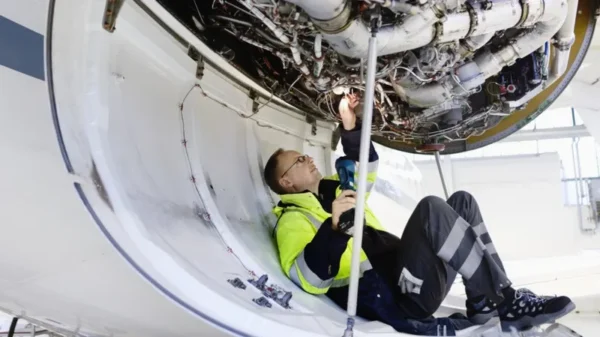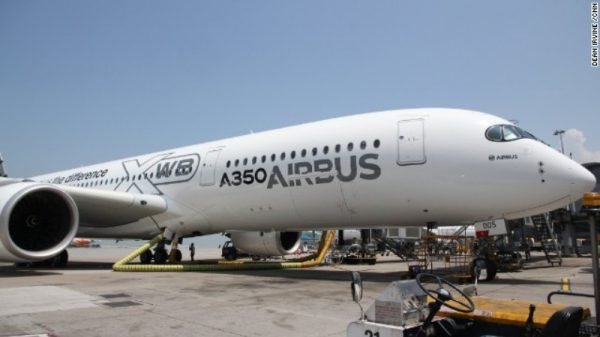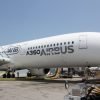Airbus Clinches Jet Deals with Two Asian Operators, Previously Boeing Buyers
In a significant win for Airbus amidst Boeing’s ongoing manufacturing challenges, the European planemaker secured orders for 65 jets from two major Asian customers on Thursday. This development comes at a time when Boeing is grappling with quality issues following a mid-flight panel blowout incident involving a 737 MAX 9 jet.
The orders represent a setback for Boeing, which has been forced to limit production of narrow-body jets due to its manufacturing crisis, making it more difficult to compete with its European counterpart. Japan Airlines (JAL) announced its intention to purchase 21 wide-body A350-900 and 11 A321neo narrow-body jets from Airbus, marking the first time the airline will acquire smaller single-aisle jets from Airbus instead of its longtime partner, Boeing.
This order from Japan’s second-largest airline allows Airbus to expand its presence in a segment traditionally dominated by Boeing. JAL’s decision to diversify its fleet follows Airbus’s breakthrough order of A350 wide-body jets over a decade ago, signaling a growing trend of airlines opting for Airbus aircraft.
Additionally, Korean Air, South Korea’s largest carrier, revealed plans to order 33 A350s in a deal worth $13.7 billion. This marks the airline’s first purchase of the A350 family as it prepares for a merger with Asiana Airlines.
While Boeing and Airbus do not disclose current list prices for their aircraft, Airbus has been steadily increasing its market share in the single-aisle segment, particularly with its A321neo, in the aftermath of the Boeing 737 MAX crises. Boeing’s production has been hampered by regulatory constraints following the recent panel blowout incident, leading to limited orders for the U.S. planemaker.
Despite the challenges facing Boeing, the limited orders were not directly attributed to the company’s troubles, according to sources familiar with JAL’s order. However, concerns about potential delays due to these issues prompted JAL to mitigate risks by diversifying its aircraft suppliers.
Analysts view Airbus’s success in securing orders from Asian carriers as an indication of strong demand for efficient, long-haul aircraft as international travel rebounds from the downturn caused by the COVID-19 pandemic. Both JAL and Korean Air cited the need to replace older aircraft with more fuel-efficient and environmentally friendly models to meet sustainability goals.
The deliveries for these orders are expected between the 2025 and 2033 financial years, with JAL estimating a total catalogue price of approximately $12.4 billion for its order. Additionally, JAL announced plans to purchase an extra A350-900 to replace one destroyed in a runway collision at Haneda airport in Tokyo in January.






































Comment Template